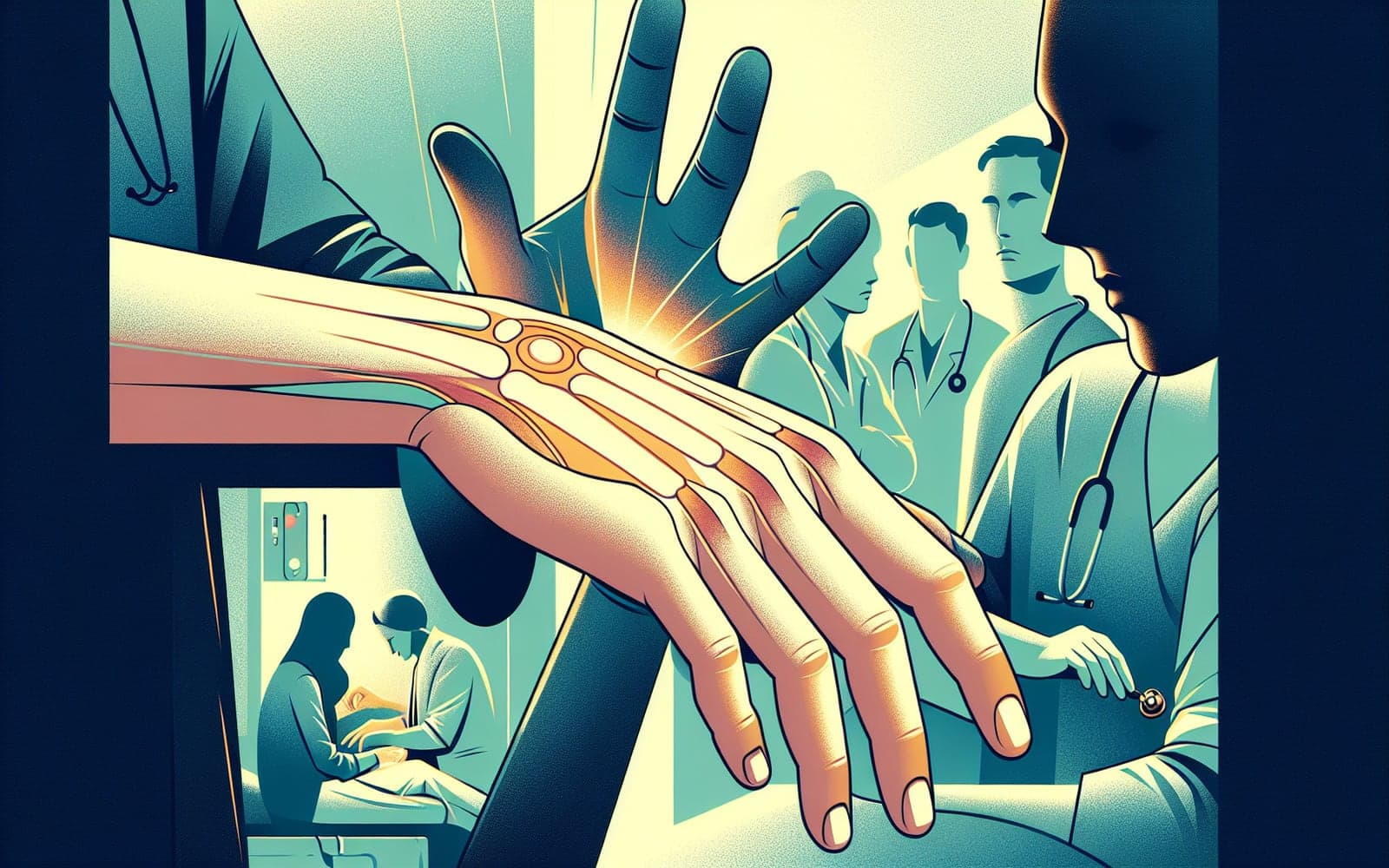Wrist at Risk: Who's Most Likely to Suffer a Lunate Injury?
Published: Mar 10, 2024
Certain factors can increase your risk of sustaining a lunate or perilunate injury. Understanding these risk factors can help you take steps to protect your wrists.
Contents
High-Impact Activities and Sports
Participants in sports like skateboarding, snowboarding, and gymnastics are at higher risk for lunate and perilunate injuries. These activities often involve falls onto outstretched hands. It's like repeatedly stress-testing your wrist - eventually, something might give.
Occupational Hazards
Certain jobs that involve repetitive wrist motions or the risk of falls can increase injury risk. This includes construction workers, factory workers, and even office workers who type extensively. Your wrist is like a machine part - constant use or sudden impacts can lead to wear and tear.

Anatomical Factors
Some people have anatomical variations that increase their risk. For example, having a shorter ulna bone relative to the radius (called ulnar negative variance) can put more stress on the lunate. It's like having slightly mismatched parts in a machine - it can lead to uneven wear over time.
Frequently Asked Questions
Yes, particularly in sports with falls onto outstretched hands.
Yes, repetitive wrist motions can increase risk over time.
Not necessarily, but certain bone alignments can increase risk.
They can help reduce risk in some activities.
Key Takeaways
Understanding your personal risk factors for lunate and perilunate injuries can help you take appropriate precautions and seek prompt treatment if an injury occurs.
Curious about your personal risk for wrist injuries? Reach out to Doctronic for a personalized risk assessment and prevention strategies.Related Articles
References
Geissler WB. Carpal fractures in athletes. Clin Sports Med 2001; 20:167.
van Onselen EB, Karim RB, Hage JJ, Ritt MJ. Prevalence and distribution of hand fractures. J Hand Surg Br 2003; 28:491.
Always discuss health information with your healthcare provider.

